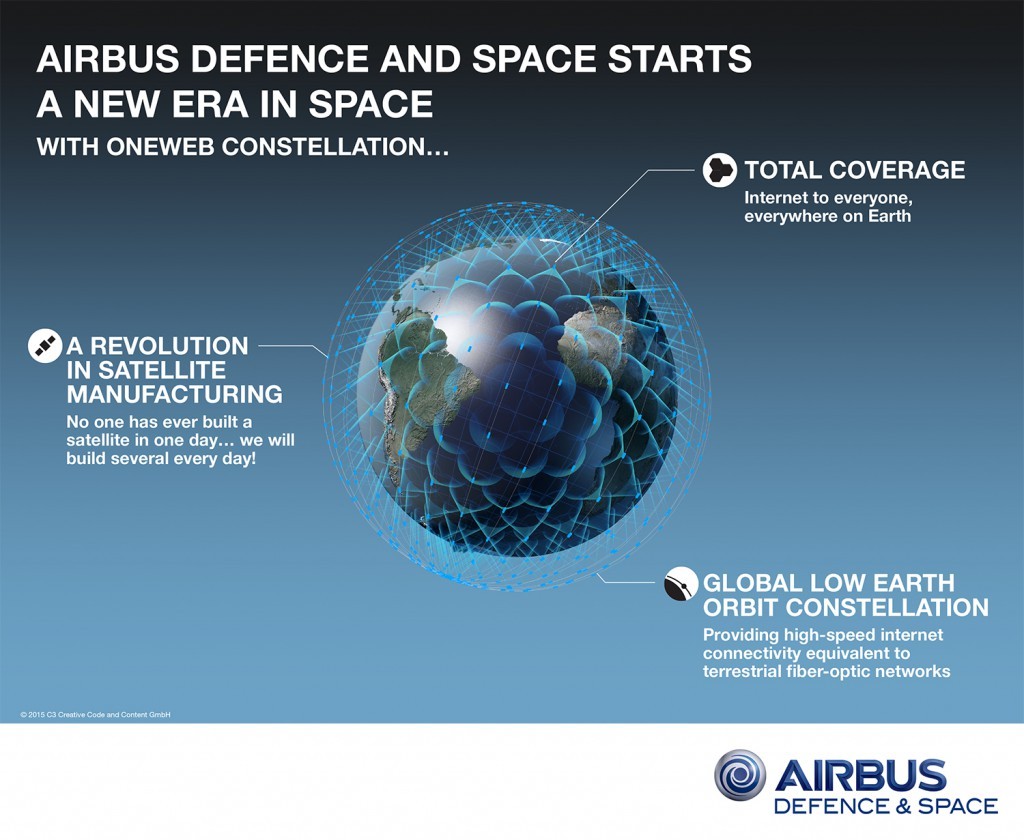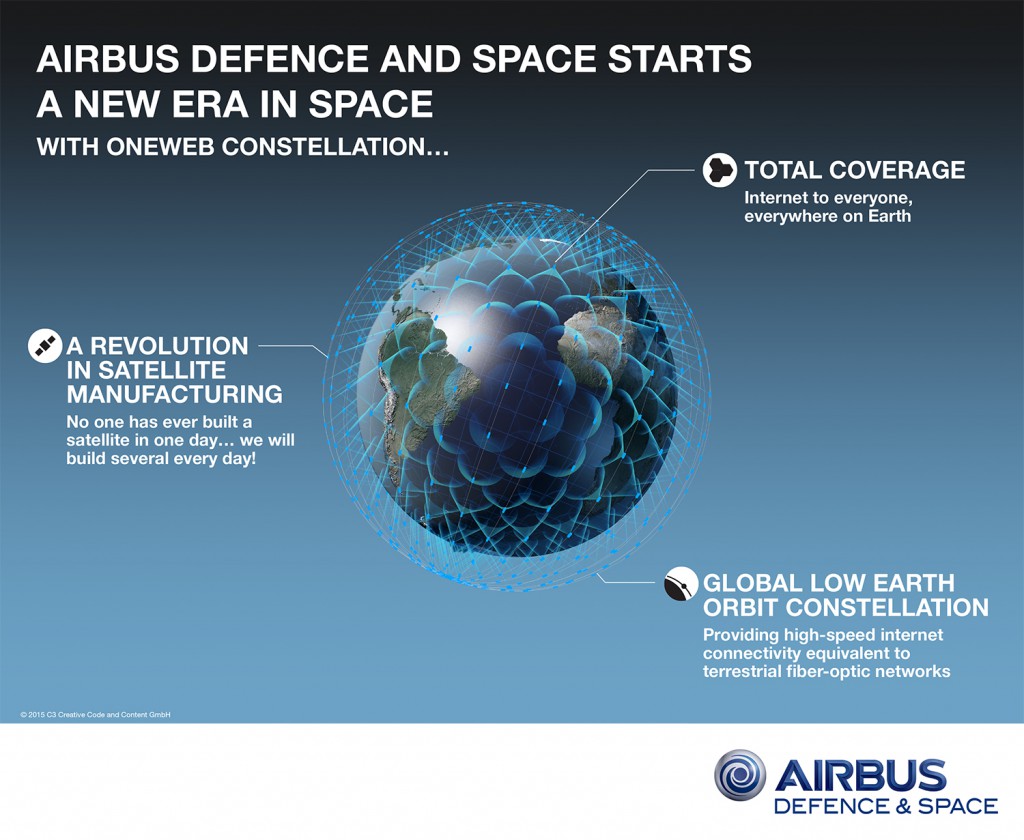Satellite internet startup OneWeb took a major step forward this week - announcing that it has entered into a joint venture with European aerospace giant Airbus to mass produce 900 low earth orbit micro-sized satellites designed to bring "Internet to everyone, everywhere on Earth."
OneWeb has an incredibly ambitious plan to set up a satellite assembly line designed to ramp up to building as many as four satellites per day, driving the cost (not including delivery to orbit) for each satellite down to just $500,000.
The initial ten satellites will be deigned and built at the Airbus facility in Toulouse, France - and once the process is perfected a mass-production assembly line will be built at a dedicated plant in the USA.
Assuming all goes to plan, the initial constellation of 700 satellites will be launched in 2018, with the remainders held back as spares.
OneWeb's Ambitious Plans

OneWeb will achieve global coverage and low-latency communication by having 700 satellites orbiting just 500 miles above the earth, with the orbital paths synchronized so that at least one satellite will always be in sight and passing overhead no matter where you are.
It is a lot easier to communicate with a satellite 500 miles away, as opposed to beaming a signal at traditional geosynchronous communication satellites locked in a fixed location in the sky 22,236 miles above the Earth's equator.
You still need a dedicated ground terminal however, and a clear view of the sky, but aiming is not an issue at this range.
OneWeb's ground terminal is being designed to create an LTE and WiFi hotspot with the potential for delivering 4G speeds beamed down from space. Assuming the cellular carriers cooperate, this will potentially allow you to bring your cellular service with you wherever you go.
Though primarily targeting fixed installations into places where wired or cellular internet has yet to reach, OneWeb has announced plans to create a vehicle mounted mobile ground terminal designed for emergency vehicles, and hopefully it will be appropriate and available for RVs too:
Wherever you go, your mobile network will follow you with our patented mobile terminal. It mounts to the top of any emergency vehicle, providing a 200m LTE coverage circle when towers aren’t available. Our terminal senses whether your operator has coverage and, when they don’t, instantly makes their mobile network available. We can provide instantly deployable connectivity or long-term access solutions to those affected by hurricanes, earthquakes and refugee situations, extending the operator's network and assuring 4G quality Internet and voice for first responders, humanitarian workers and medical personnel where and when they need it most.
Is This Just Pie In The Sky?
Satellite internet is extremely hard to do - and the costs to get a service initially off the ground (literally!) is astronomical. A lot of ambitious satellite plans of the past that sounded great on the drawing board never seemed to get anywhere.
But despite being a small company - OneWeb is backed by the Virgin Group's billionaire founder Richard Branson. And Airbus is no fly-by-night operation either, and is actually one of the world's largest and most experienced companies when it comes to building communication satellites.

While OneWeb may yet prove to be a pie in the sky scheme - it is reassuring to see that they have actually hired a baker to start cranking out the pies to put into the sky. That's a hell of promising start - though there is still a long way to go, and a lot of details yet to be revealed.
Meanwhile - SpaceX is still moving ahead with its own billionaire (and Google) backed plans to roll out a similar global satellite internet communications system with a service launch targeted for no sooner than 2020. But assuming OneWeb stays on schedule to launch in 2018, it may just beat SpaceX by two years.
Is there room for two competing next generation satellite internet services? Will either of them prove to be at all appropriate for RV usage?
We'll just have to wait and see how all the details, pricing, and service plans shake out.








 Mobile Internet Resource Center (dba Two Steps Beyond LLC) is founded by Chris & Cherie of
Mobile Internet Resource Center (dba Two Steps Beyond LLC) is founded by Chris & Cherie of